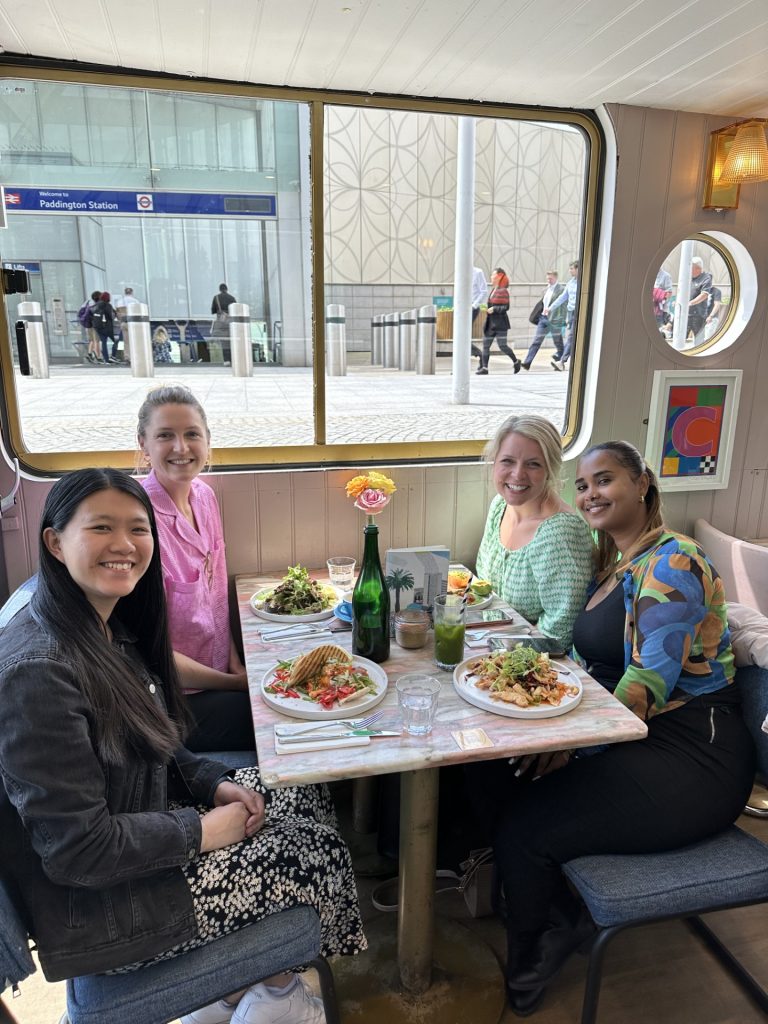
IGHI recently received funding from the National Institute of Health and Care Research (NIHR) for an 18-month project in partnership with the Marylebone Project and Central London Healthcare which focuses on supporting the safe and meaningful involvement of women experiencing homelessness in research.
People experiencing homelessness have shorter life expectancies, poorer physical and mental health, and less access to healthcare than the general population. For women experiencing homelessness, the average age of death is 43 – two years younger than men and nearly half the life expectancy of women in the general population. Many homeless women are survivors of abuse, and more research is needed to provide specialised, female-led support for this group in safe, trauma-informed spaces.
However, the Marylebone Project told us that current research practices can be harmful for the women who take part. Short-term projects where researchers ask participants to answer personal questions and recount traumatic events without taking the time to build trust and rapport do not offer a safe environment for women to authentically share their experiences.
To address this, we have worked together to develop a project which aims to understand how we can meaningfully involve women experiencing homelessness in the design and delivery of our research to ensure it is relevant and safe for participants, while also protecting the mental wellbeing of the women and researchers involved. To do this, we will draw on the psychologically informed practices used by frontline homeless services to protect the mental wellbeing of their service users and staff.
Below, Miriam Kennedy and Chatsuda Chierakul, lead applicants for the project, share what makes this project special and what they hope to get out of it.
Miriam is Centre Manager at the Marylebone Project, the UK’s oldest and largest women’s homelessness organisation with 112 beds and a women’s-only drop in that’s open 24/7, 365 days a year. Chatsuda is a general practitioner and the Training, Education, and Research Lead for Central London Healthcare, a federation of 33 general practices in Westminster caring for over 275,000 patients.
Why did you want to be part of this project?
Miriam: At the Marylebone Project, we deeply value women’s experiences of the world, and we aim to give space for women to use their voice and share these experiences. We support women who are impacted by homelessness and crisis, and they are often hidden in the stats regarding homelessness in the UK. Women face very unique challenges in regard to homelessness. We know how important research is in order to stop homelessness and violence against women, and we wanted to be part of a project which would be holistic, psychologically informed, and where women were at the heart of the research.
Chatsuda: Two of Central London Healthcare’s practices are homelessness practices, and London has the largest homeless population in Europe. Several of our practices are also located in and around the Marylebone area. As primary health care professionals, we are somewhat aware of the difficulties facing women experiencing homelessness, and we already do work with other organisations including adult safeguarding leads and IRIS advocate educators to try to improve the care we offer, but there is still plenty of room for improvement. There is also a significant lack of research with this population, and this project looks at how this can be changed.
What makes this project different from research projects you’ve been part of in the past?
Miriam: I think the main difference is time. So far, our women have been offered much more time and care in this research project. Their ideas, experiences, and stories have not been plucked from them to fill in stats in Excel sheets. Instead, there has been open conversation; safe spaces and hospitality have been offered. Women have felt very safe and the sessions together so far have been more about sharing and listening than accumulating data. Women have left the sessions feeling heard and seen.
Chatsuda: At Central London Healthcare, we have been involved in an extremely wide variety of research projects. We have been involved in some trials which have been open to people experiencing homelessness, but this project is different in that it is designed specifically for women experiencing homelessness, and it is a collaboration between many different organisations who haven’t worked directly together before.
What do you hope to learn and achieve through this project?
Miriam: Our aim is that our women will feel empowered to share their experiences, know their value, and gain knowledge and understanding of how research can be offered in a way which nurtures and cares for the participants. We aim to highlight the issues women face in healthcare and for positive change to be made.
Chatsuda: Ultimately, we all want to be able to improve care and wellbeing for women experiencing homelessness. Enabling research with this population would help with that goal. By reaching out to these women in an approachable way, this should help us better understand what would make the biggest different for them.